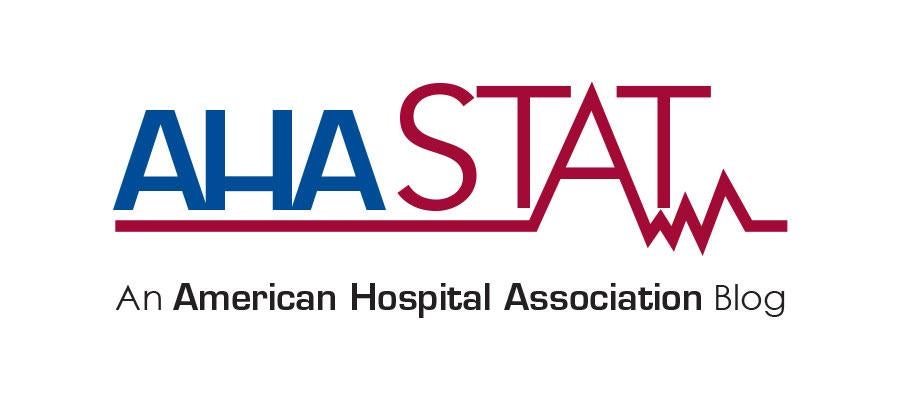Restoring the 340B OPPS Payment Policy: Good for Patients, Good for Providers

In July, the Centers for Medicare & Medicaid Services published its annual outpatient prospective payment system regulation, in which the agency proposed a series of important policy changes, including a significant change to the payment rate for drugs purchased through the 340B drug pricing program. In light of the U.S. Supreme Court’s unanimous decision in American Hospital Association v. Becerra, the agency proposed that it “fully anticipates” restoring a payment rate of average sales price (ASP) plus 6% for 340B drug claims.
A recent report by Avalere funded by the Community Oncology Alliance (COA), an organization that has a long history of trying to undermine the 340B program, contends that the restoration of the ASP plus 6% payment policy for 340B drugs is detrimental to patients and providers.
These arguments are entirely without merit. Here are the facts:
- Restoration of 340B payments would help maintain access to many critical programs and services for patients. Undoing the nearly 30% unlawful payment cut for 340B hospitals will restore important 340B savings to hospitals that rely on those savings to implement a range of tailored programs and services that are critical to the patients and communities they serve. Examples include behavioral and mental health services, medication assistance treatment programs, mobile treatment clinics for rural populations and the provision of high-cost medications at little or no cost to patients. Ultimately, reimbursing 340B hospitals at ASP plus 6% will ensure that millions of patients nationwide have access to important services that improve their health and well-being.
- CMS’ proposed budget neutrality adjustment is inaccurate and needs to be revised to ensure all hospitals are not underpaid going forward. Avalere’s analysis suggesting that many hospitals will see net reductions in payment is predicated on CMS’ flawed budget neutrality adjustment. AHA and others have commented to CMS that its proposed -4.04% budget neutrality adjustment is inaccurate and should be revised to -3.19%. When CMS first implemented the policy to pay 340B hospitals ASP minus 22.5% for 340B drug claims, it estimated that $1.6 billion in payments would be reduced to 340B hospitals that would then be redistributed to all hospitals through a +3.19% adjustment to the OPPS conversion factor to maintain budget neutrality. To undo the policy, the agency must simply reverse the original +3.19% adjustment with a -3.19% adjustment, rather than apply a new, steeper adjustment of -4.04% that would result in a permanent underpayment to hospitals of approximately $410 million. By correcting its proposed neutrality adjustment, CMS can ensure that all hospitals are not underpaid in calendar year 2023 and can continue to care for their patients and communities.
- Restoration of 340B payments will not dramatically increase cost sharing for most Medicare patients. Most Medicare fee-for-service beneficiaries have supplemental coverage that covers any cost sharing liabilities that patients may have. According to a KFF study, nine in 10 Medicare FFS beneficiaries had some kind of supplemental coverage.
- CMS cannot rely on its defective 2020 survey to set 340B payment rates prospectively. Avalere’s study points to a survey of acquisition costs that CMS conducted in the spring of 2020 as an option for the agency to set payment rates for 340B drugs for CY 2023. Avalere’s report fails to mention that this survey did not meet the statutory requirements, including by not surveying all OPPS hospitals, and the results were not statistically significant. On top of these flaws, the survey was conducted at the height of the one-in-a-century pandemic, not surprisingly resulting in a very poor response rate that the agency cannot use to set payment rates for CY 2023. Perhaps for these reasons, CMS has never relied on this 2020 survey. Doing so now would not only fly in the face of what the OPPS statute requires but would result in more substantial payment cuts to hospitals.
- Restoration of 340B payments will help many hospitals deal with the skyrocketing costs of drugs. During the pandemic, hospital drug expenses have skyrocketed in large part due to drug companies continuing to take unsubstantiated price increases for their products and bringing new products into the market at record-high prices. In fact, a study by Kaufman Hall found that by the end of 2021, hospital drug expenses on per patient bases were 36.9% higher than pre-pandemic levels, in part driven by significant price increases of commonly used drugs to treat critical illnesses such as cancer and rheumatoid arthritis. Higher payments for these drugs will help offset the higher costs associated with acquiring these drugs, as well as administering, storing and handling these drugs.
Ultimately, restoring the payment rate for 340B drugs to ASP plus 6% will help ensure that providers are able to stretch scarce federal resources as far as possible, reaching more eligible patients and providing more comprehensive services. By doing so, hospitals that participate in the 340B program can continue to fulfill the mission of the program that has for 30 years withstood repeated attempts by drug companies and other groups, such as the COA, to undermine its scope. No matter how you look at the numbers, the fact remains that the 340B policy will help many hospitals around the country better care for the patients and communities they proudly serve each day.

